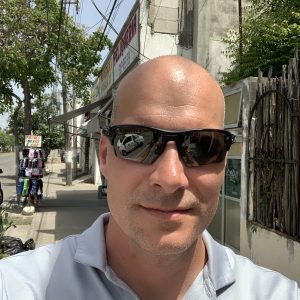The so-called “identified patient is a proverbial scapegoat,” wrote Annie Wright, LMFT, on Psychology Today in 2022. “Identified patients are often the first people in the room to nod their heads when the term ‘black sheep’ is said. You say ‘scapegoat,’ and they say ‘yes.’ They know what it is to feel lonely, unsupported, and possibly alone.” Not exactly the ideal foundation for successful therapy.
“An identified patient is often identified as the problem by family members and is often brought to therapy for their perceived problems,” Wright wrote. “A classic example from the family counseling space is when parents bring an adolescent into therapy with the primary goal of ‘fixing’ that child, when in fact the work that must be done is with the entire family system.”
Turning Winds therapists are quite familiar with this dilemma. “It’s easy to identify a person as the problem,” says clinical director Jared Sartell, LCSW. “As adults, it’s easy for our ego to identify a different person and teenagers are the most fabulous scapegoats on the planet.”
In order to avoid the unhelpful “black sheep” scenario described above, Turning Winds uses a family system model. “That means there are all those systems bumping into each other. Systems can be the people: mom, dad, siblings, pets. Systems can also be traditions whether adhered to consciously or subconsciously. The roles that we may play in our families—all of those are systems.”
The Turning Winds team doesn’t just work with the identified teenage patient. “We help the parents and the students understand that they are one part of the system,” says Sartell. “In order for the system to work well after treatment, the system needs to change. Families that change the most about their system tend to have better long-term outcomes.”
“When a system is not healthy enough to tolerate and metabolize the stressors and painful experiences of its individuals, or any iteration of individuals—when the psychological strength and skills to deal with this are absent—the family system unconsciously ‘outsources’ the anxiety, pain, and frustration they are going through,” explained Wright in the Psychology Today article. “It’s like having a really lousy day at work and then coming home and yelling at your partner even though they did nothing wrong: You’ve ‘outsourced’ your painful feelings onto a person who was not the cause because you couldn’t regulate yourself.”
Of course, any such “outsourcing” doesn’t make the family system healthier or more resilient—or the identified “problem child” for that matter. At Turning Winds, we believe when working with children one has to be supportive and consistent in every situation. When working with a child that has been diagnosed with a mental health disorder, especially if a substance use disorder is involved, this is even more imperative. It may require special training, experience, and even an inherent disposition to be able to self-regulate.
A coordinated team effort is extremely helpful. Communication is critical between all team and family members so they are aware of specific areas the child is processing at the moment.
“We don’t accept the ‘Hey, fix my kid thing’ here,” says Sartell. “If we discern that’s where the parents are coming from, we have some pretty long conversations with them before their child is enrolled at Turning Winds or we recommend other possible treatment options. The Turning Winds program is designed to get each member of the system to look at what they can do differently—and not necessarily as a criticism or judgment but small tweaks to the system will affect every other part of the system.”
The best way to find out if our program is the right one for your child is to speak with us in person. Contact us online or call us at (800) 845-1380 and we can start the conversation.









